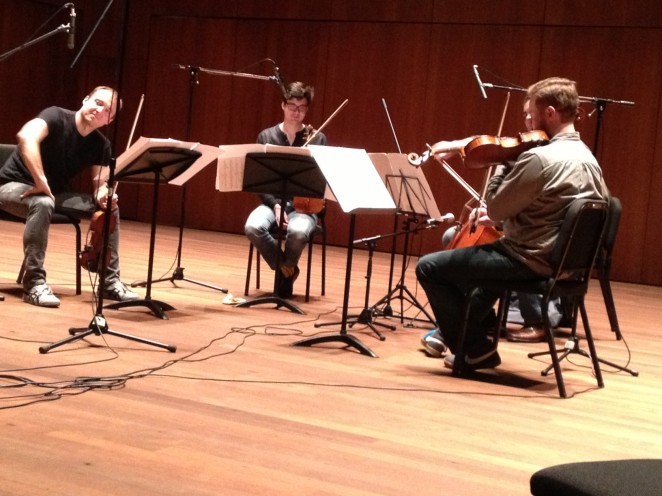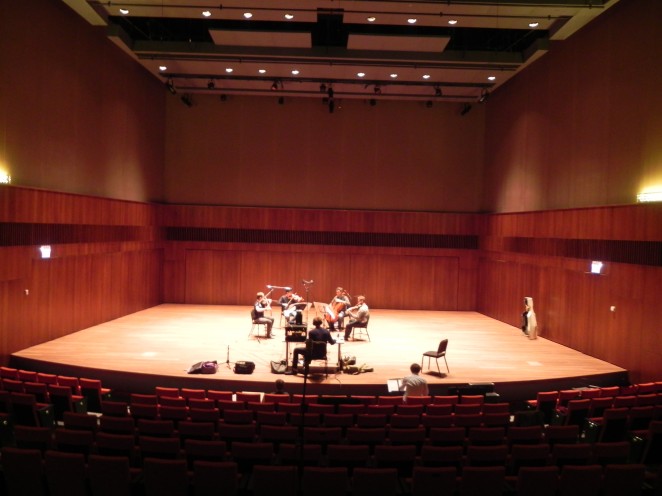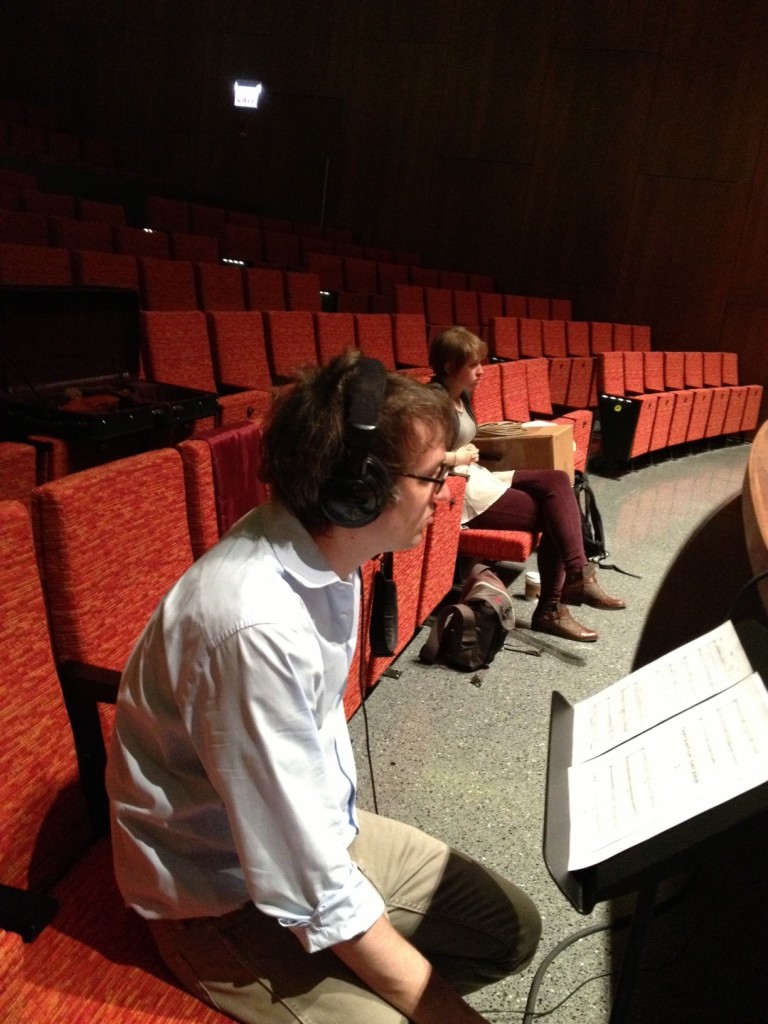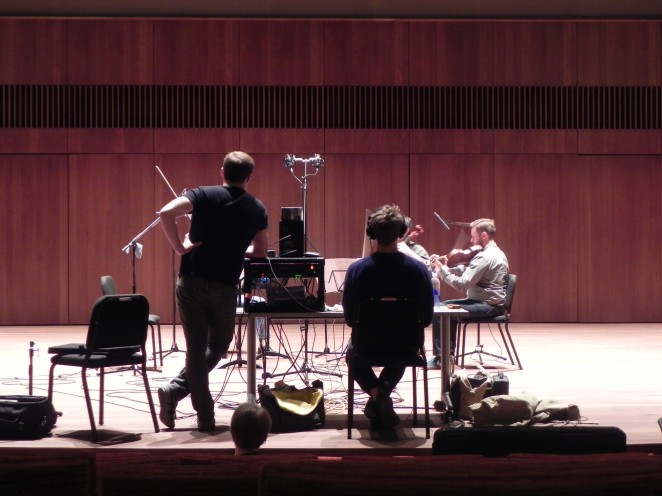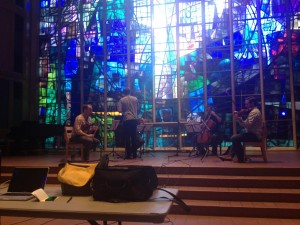As any follower of this blog knows, this quartet likes to have a lot of projects cooking at any given point. With our debut album recorded and mid-preparation for our disc with Julien Labro that we'll put on tape in September, it was really exciting and somewhat odd to have
Chris Fisher-Lochhead come to the rehearsal studio some days ago to work on a project that won't see the concert hall until beyond this upcoming season. I'm talking 2014-15, people!
I'm planning to document what will be a long, and detailed process of engagement with the world of standup comedy from a musical standpoint. Chris has already been thinking about this for years (as evidenced by the repeated Richard Pryor clips I used to hear coming from his desk when we were roommates), and we're excited to endeavor with him in digging deep into the musical aspects of a fascinating and rich performance medium.
Our first session came together over this clip
excerpted from a Richard Lewis appearance. Check out the audio, and then see where Chris and my conversation begins. I hope you'll enjoy following along as the conversation unfolds.
JAW: How did you come to decide upon this short clip from Richard Lewis to tackle first?
CFL: As a little background, I had started to transcribe the deliveries of standup comics in the spring of 2011 as a way to study the use of the human voice in performance situations. I first transcribed 30 second clips by Paul Mooney, Richard Lewis, Woody Allen, George Carlin, Richard Pryor, Lenny Bruce, and Dave Chappelle. The Richard Lewis clip seemed to me to be the most "musical" in a traditional sense; it had a clarity of pitch and regularity of rhythm that eased with the translation between media.
JAW: Musically speaking, how does the string quartet work for you as a medium for this concept of transcribing the cadence of standups?
CFL: In some ways, the string quartet as an ensemble is actually rather inadequate as a means to capture the various aspects of human vocal delivery. Unlike wind and brass instruments (and of course, the human voice), string instruments do not rely on the use of breath for sound production, they do not employ the tongue for articulation, and they do not have the same possibilities for noise production that are so important for the production of linguistic meaning. However, for my purposes, the string quartet is an excellent fit. First of all, as a string player, I am very comfortable writing for string instruments. Secondly, as the point of the project is to focus on those aspects of comedic delivery which are properly "musical", the choice of a medium that necessitates some form of translation can actually accentuate those aspects.
JAW: How do you feel affect of Lewis' nervous, neurotic patter effects the music you wrote to fill out the arrangement?
CFL: Although Richard Lewis' onstage persona is certainly very neurotic and nervous, it's interesting that his delivery is a lot more traditionally musical than those of the other comics I studied. One of the things I plan to do in the future is compare the musical characteristics of a specific comic's delivery with the way that delivery articulates their onstage persona. For example, is there some correlation between the regular rhythms and songlike pitches in Richard Lewis' routine and its nervous character? Is there a correlation between the long pauses and monotone delivery of someone like
Tig Notaro and their "dryness"? Regardless, in transcribing the exact rhythms of human speech, the resulting rhythms will inevitably be more irregular and jagged than those of a traditionally metric music.
JAW: You said after we put together this quick recording of the Richard Lewis excerpt that you were glad we did something this early because unexpected problems came to light. What aspects of this transcription process proved to be the most vexing? Which aspects of the notation or approach to transcription are you currently wrangling with conceptually?
CFL: I would say that the biggest unexpected obstacles that became evident as we did this arrangement were all practical in nature: creating a tempo map and click track to exactly match the source material, creating an arrangement within the limitations of an absolutely strict click track, and synching up the live performers with the click track.
JAW: It's amazing how far this excerpt has come toward a fully expressed musical aesthetic even in this incredibly early stage of this project's development. Check out the quartet music without Richard Lewis' voice and see for yourself:


